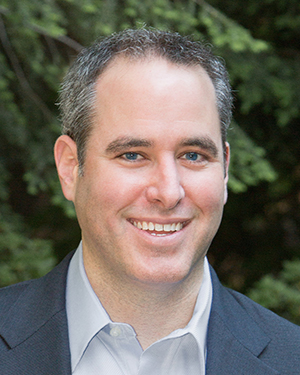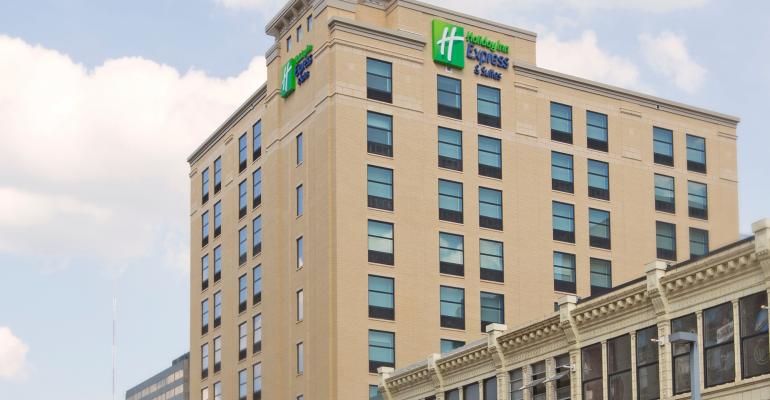Atlanta-based Peachtree Hotel Group is putting the capital it has raised for opportunistic hospitality investments to work. The real estate private equity investment firm recently announced that it had hit a major milestone, acquiring more than $1 billion in stressed and distressed real estate assets since June 2020. Peachtree has capitalized on the dislocation created by the pandemic, acquiring both debt and equity positions in hotel assets at a discount to pre-pandemic pricing.
The company has $250 million in dry powder available to deploy, and despite the recovery underway in the lodging sector, the firm sees more opportunities ahead. “We do think there is going to be a surge of acquisition opportunities as a lot of borrowers are becoming fatigued,” says Peachtree CEO Greg Friedman. Next March will mark two years into the COVID-19 pandemic. “Even though business is recovering, in a lot of cases, it is not going to recover quick enough to help a lot of hotel groups be able to refinance all of the existing debt on their properties or provide enough capital for needed renovations,” he says. “That is going to force a lot of hotel owners to consider selling their assets.”
WMRE recently talked with Friedman to hear more about the firm’s acquisition strategy, its plans to reposition stressed assets and his view on where distress is likely to emerge in the coming months.
This interview has been edited for style, length and clarity.
WMRE: What was been your overarching strategy for acquiring stressed and distressed hospitality assets over the past year?
Greg Friedman: Over the last 12 months we have focused on buying debt, as well as equity—the real estate—on hotels. We’ve had more success in buying debt positions. When I say debt positions, we are buying primarily first mortgage loans secured by hotel properties, or in some cases a mezz loan. That’s been the majority of what we’ve acquired over the last 12 months and where we’ve found success is buying debt from different financial institutions that are looking to deleverage their balance sheet towards the hospitality industry. We also have had some success in buying hotel properties, or equity in hotel properties, but not nearly the success we have had on the debt side.
That being said, our acquisition strategy is focused on providing both debt and equity for hotels. We’re looking to acquire hotel properties that are well located and well branded, specifically the premium branded hotels that are in locations with very sustainable demand drivers.
WMRE: Are you willing to look at all hotels, or are you focused on a particular category?
 Greg Friedman: We are primarily focused on flex-service and limited service hotels, as well as compact full service hotels.
Greg Friedman: We are primarily focused on flex-service and limited service hotels, as well as compact full service hotels.
WMRE: Do you have a target return or range that you are hoping to achieve?
Greg Friedman: Typically we are targeting to achieve a minimum of mid-teen returns, if not closer to 20 percent, or IRRs of 15 percent to 21 percent or more.
WMRE: Do you have a buy and hold strategy, or do you plan to stabilize and then sell?
Greg Friedman: When we buy the real estate on the hotels, typically it is a buy, stabilize and then we would look to sell those assets within the next three to five years once we have been able to stabilize the operations. In some cases, we are buying hotels where we are going to conduct a brand change and maybe up-brand that hotel with a different flag that is stronger. In other cases, it may be completing a cap-ex program that may also include a new brand or a longer franchise agreement with the current brand. That renovation will allow us to be competitive with the comp set, and potentially be able to stabilize at much higher revenue per available room when we complete renovations compared to how that hotel was performing pre-pandemic.
We’re buying debt positions with the idea that we’re going to restructure those loans and keep the borrowers in place, and hopefully get paid off at a later date when the borrower goes out to refinance that loan or sell that asset.
WMRE: You’ve acquired more than $1 billion in assets over the past 15 or so months. Were those single asset or portfolio deals, and how did you source those deals?
Greg Friedman: It’s been a mixed bag. On the debt side, we’ve bought portfolios of five or 10 loans or more at a given time from probably 10 different financial institutions over the past 12 months. On the real estate side, we have bought from different sellers as well, but it has been mostly single transactions.
WMRE: There was a lot of capital raised for stressed and distressed hotel assets. How competitive was/is that market?
Greg Friedman: A lot of the capital that has been raised for distressed hotels has been targeting deals where they can go out and buy the real estate. It’s definitely created challenges for us and a lot of competition. We haven’t had a lot of success buying on the real estate side. We’ve had more success on the debt side because the universe of buyers of notes is a little bit thinner. In either case, we are truly an organization that has a high focus towards hospitality. We have a lot of internal knowledge on different submarkets and different brands. Given our institutional knowledge about the hospitality industry, we have been able to be successful in making acquisitions. A lot of the different institutions and funds that are trying to make investments in the hospitality industry today have capital, but they don’t necessarily have the knowledge or experience that we do.
WMRE: What kind of discounts to pre-pandemic values are you finding?
Greg Friedman: There is definitely a big range in how assets are trading depending on the type of asset. The better quality assets were trading at 10 to 25 percent discounts during the pandemic, and I would argue that the discounts today are closer to 10 percent. In some cases, they are trading at no discount to 2019 pricing. So, you have seen the discounts compress downward over the last couple of months. On the debt side, discounts have been in the same range as well—about five to 20 percent of principal unpaid balance.
WMRE: How much equity did you have to fund this strategy?
Greg Friedman: We had approximately $800 million of equity that we had available to make investments into stressed and distressed assets.
WMRE: Where did that equity come from to fund this strategy, internal or external investors, and how was it structured?
Greg Friedman: We manage multiple funds. We are private equity sponsors that have a focus towards the lodging industry, and we had a specific vehicle for this investment strategy.
WMRE: Who are your main investors?
Greg Friedman: It is primarily family offices, high net worth individuals and some institutional-like groups, such as endowments. So, it’s a mixed bag of investors with a high concentration of family offices and super high net worth individuals.
WMRE: What channels do you use to source your investors?
Greg Friedman: We do have capital that comes from the independent broker/dealer channel, registered investment advisors and through direct relationships that we have with different investors.
WMRE: How much dry powder to you have to place out of that $800 million?
Greg Friedman: Currently, we have roughly $250 million in equity available to make new investments, and with leverage we can stretch the potential investments that we can make higher than that $250 million.
WMRE: What opportunities do you see ahead to place that capital in the coming months?
Greg Friedman: I think there are still buying opportunities. The current concerns with the Delta variant are creating some dislocation in the market. Although we are seeing a recovery in lodging on a macro level, you are starting to see a lot of cancellations going into later this month and September for group and convention business, as well as corporate travel that is starting to pull back some. That’s going to create some concerns for hotel owners to potentially sell assets at pricing that makes sense for us as a buyer, as well as for financial institutions to consider selling off their first mortgages or mezz positions in certain hotel assets. So, I think there is motivation in the market given the Delta variant, as well as some of the other variants.
The other factor is that we have been through this pandemic for some 18 months. Unfortunately, we’re not going to get back to full recovery in lodging for at least another 12 to 18 months given some of the headwinds we still have in front of us. With all that said, you’re going to find that there are still a lot of hotel groups that need to put capital into their properties, because brands are starting to mandate certain renovations be completed by 2022 or 2023. There is a lot of deferred maintenance, and a lot of hotel owners are still trying to shore-up liquidity by selling off certain assets. So, we believe there’s going to be more assets that come out to the market in fourth quarter, as well as the first half of next year.
On the debt side, we think some of the same motivating factors will play out with lenders looking to sell loans, as well as the fact that they are dealing with potential troubled debt restructures, especially among the regulated banks. That will be a motivating factor in fourth quarter of this year. As their coverage under the Cares Act starts to burn off, it’s going to cause them to consider doing note sales, which plays well to our strategy on the buy side. So, we think that is going to create a huge investment opportunity.
WMRE: You said earlier that you have seen more opportunities on the debt side versus equity. Do you see that shifting going forward?
Greg Friedman: There is going to be a lot of opportunities on the debt side. After fourth quarter of this year, we believe it is going to be mostly on direct loan originations where we are actually financing a hotel owner that is coming to us looking for financing. But probably what we are going to see is more opportunity and a little more balance for us where there will be more opportunities to go out and acquire real estate and buy properties at the end of this year, as well as the first half of next year.





